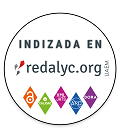Readers and economic readings in Buenos Aires at the end of the colonial period
Abstract
The article attempts a first look to the world of the economic readingsin Buenos Aires in the last years of the colonial period: which authors circulatedmore frequently, which books used to be found in the private libraries, and whattype of people were interested in them, starting from the inventories of privatelibraries, and indirectly, from the registration of books donations to Public Libraryin the first independent years. The postulated hypothesis is that the economicsbooks enjoyed of more freedom in the Buenos Aires late colonial period, propitiatingthe diffusion of the new ideas of the so-called “Christian Enlightenment». It wasin this context, characterized by the active presence of the clergy and the officialsof the viceregal administration, (i.e., the members of the two Powers: the Crownand the Church), and an increasingly influential mercantile sector, which constitutedthe readers of economic works. On the other hand, the analysis of the librariesinventories shows how frequently the Spanish and Italian authors appeared, throughtranslations, adaptations or copies like other European economists’ middlemen.Downloads
Authors publishing in this journal acknowledge the conditions below:
- Authors retain the copyright of their work while they transfer the right of the first publishing to the journal, under the Creative Commons Attribution-ShareAlike 4.0 International (CC BY-SA 4.0) Licence, which allows third parties to reproduce them under the condition that express mention is given to the author and to its original publication in the journal.
- Authors may enter into other contractual and independent arrangements for the non-exclusive distribution of the version of the article published in this journal (for instance, it can be published in an institutional repository or in a book). In any case, an express mention should be given to its first publication in the journal.
- It is permitted and encouraged to publish online the articles (for example, on institutional or personal pages).






















